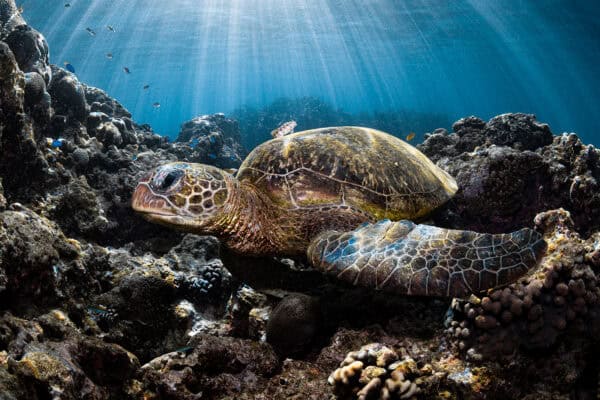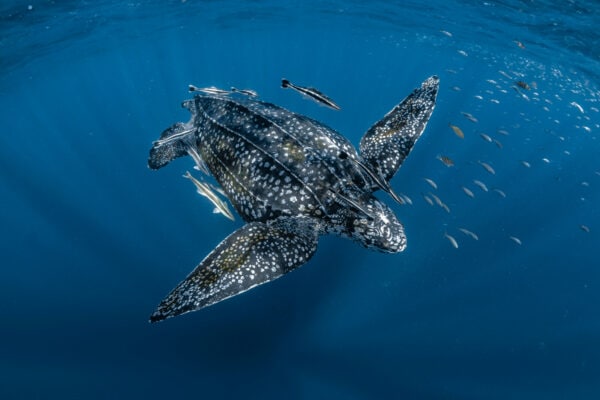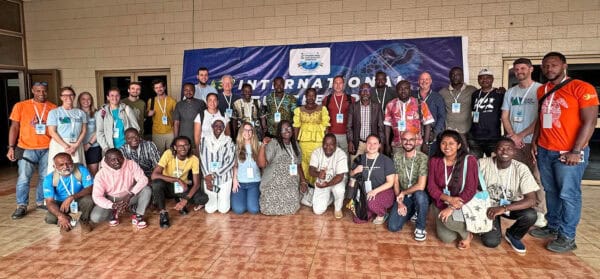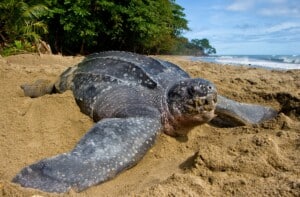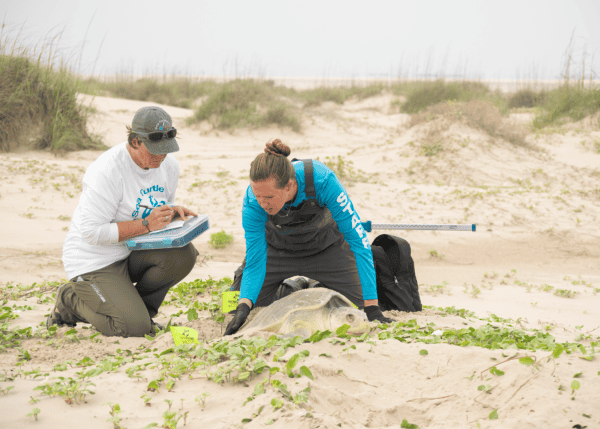We’re strengthening local sea turtle conservation, globally.
Ancient, beautiful, and threatened, sea turtles have survived on Earth for more than 100 million years, yet today their future hangs in the balance. Six of the seven sea turtle species are threatened with extinction due to human impacts (see more facts about sea turtles). Through our sea turtle conservation program, we are working to save sea turtles from extinction worldwide.
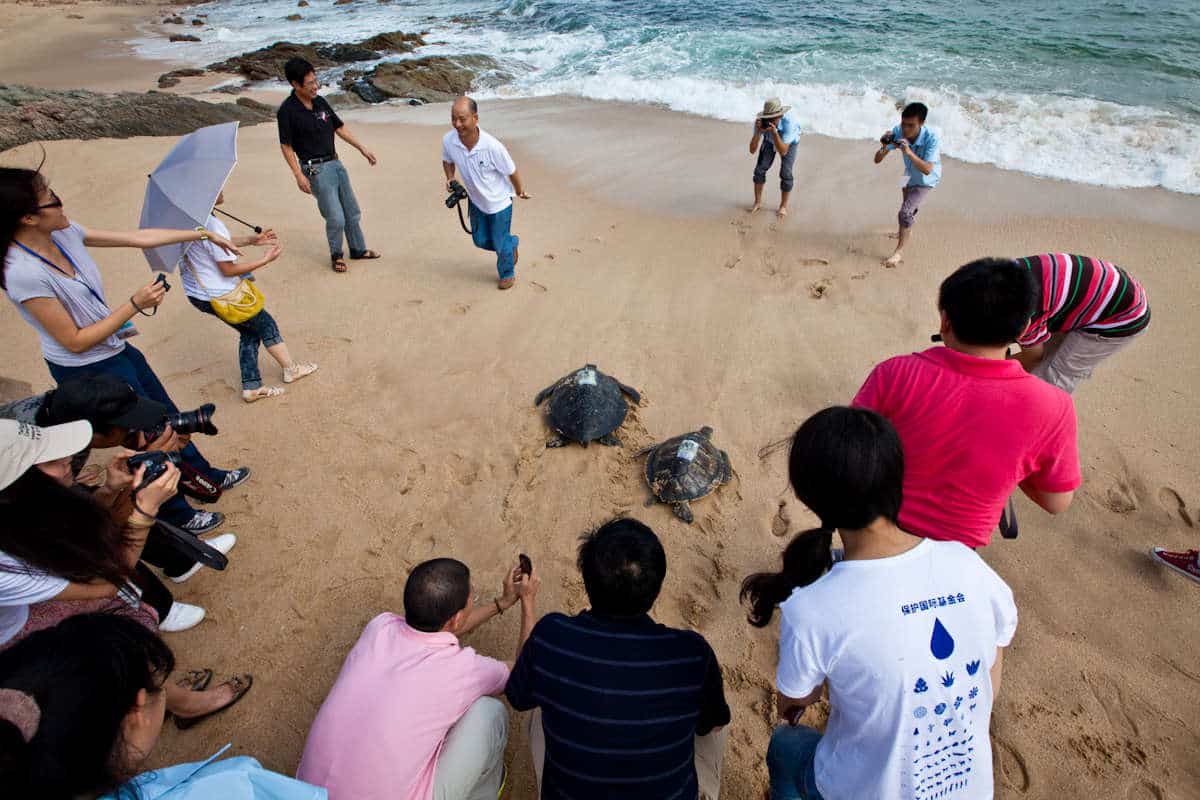
Adopt A Sea Turtle
Support our global sea turtle conservation programs by adopting a sea turtle today.
The top five threats that endanger sea turtles are:
- Fisheries Bycatch: Considered the greatest threat to sea turtle populations worldwide, scientists estimate that millions of sea turtles have been accidentally captured by fisheries since 1990.
- Pollution: Plastic pollution, oil spills, and chemical runoff all impact sea turtles. A recent study found plastic in the stomachs of more than one-third of leatherback turtles found dead since 1968.
- Coastal Development: Development of coastal areas where sea turtles breed and nest can impact sea turtles in many ways, including disorientation from light pollution, boat collisions, and nest disturbance.
- Direct Take: Sea turtles and their eggs are taken by people (both legally and illegally) in many parts of the world for consumption and use of shell material for handicrafts and jewelry.
- Climate Change: Rising sea level, hotter temperatures, and increased storm frequency caused by climate change may be leading to the loss of suitable nesting habitats and affecting natural sex ratios, which are determined by nest incubation temperature.
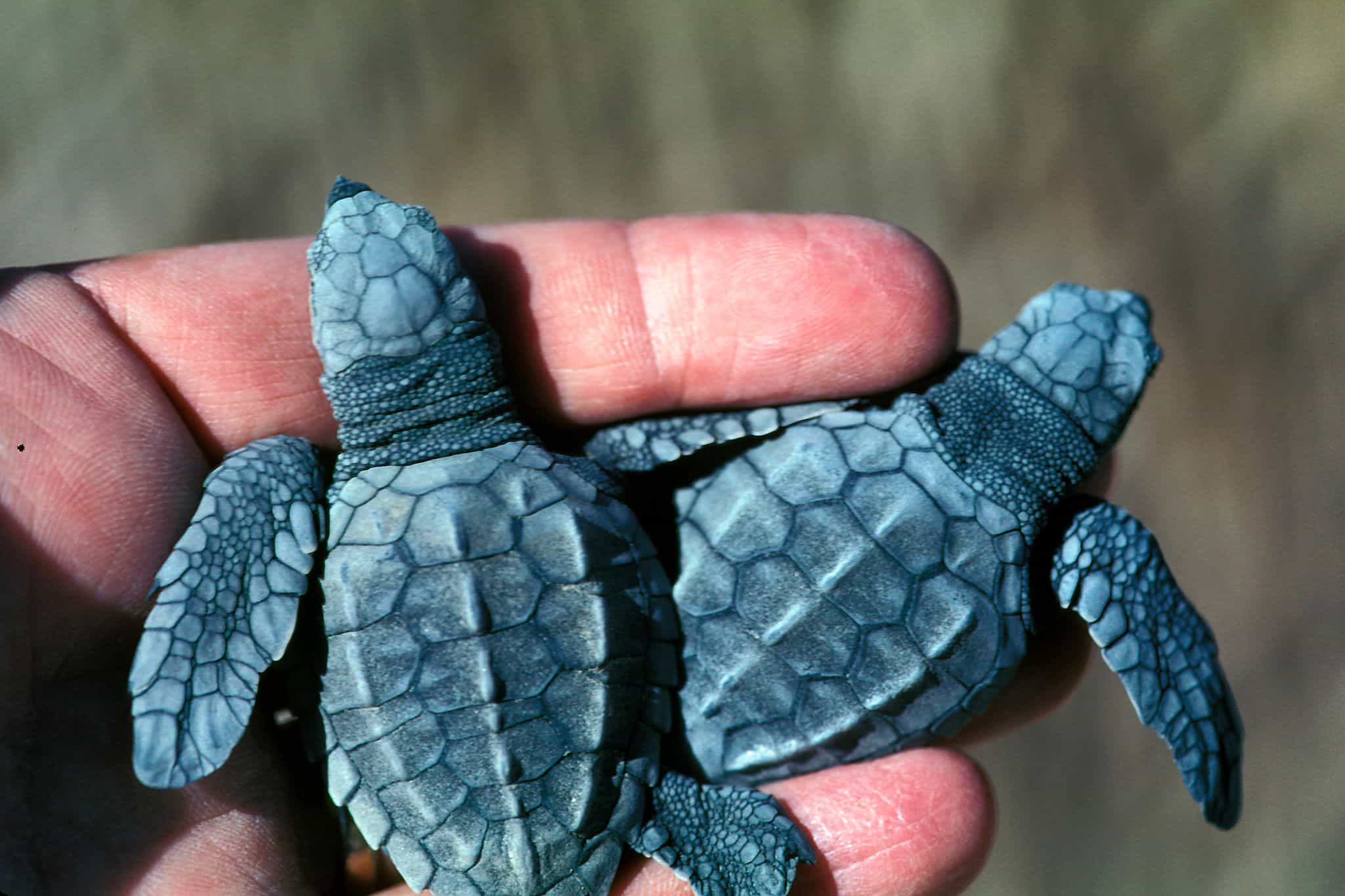
Oceanic Society Supports Sea Turtle Conservation Worldwide
Oceanic Society leads the only globally focused sea turtle conservation program, fulfilling a need in sea turtle conservation that was previously unmet. We partner with and support thousands of individuals and institutions to improve sea turtle science, set priorities for research and conservation, and provide needed resources to conservation projects through the programs outlined below.
The State of the World’s Sea Turtles (SWOT) Program
Founded in 2003, SWOT is a program led by Oceanic Society in collaboration with a global network of hundreds of institutions and individuals. This powerful group—the SWOT Team—works to compile and publish global sea turtle data that support conservation and management efforts at the international, national, and local scales. Those data reside within the SWOT database, which is continually updated and made publicly available. It is widely used by researchers, conservationists, students and teachers, funding agencies, and government officials.
Each year we publish a new volume of The State of the World’s Sea Turtles (SWOT) Report, an award-winning magazine designed to channel the SWOT Team's collective power by highlighting its success stories, innovations, and new findings. SWOT Report is distributed back to the SWOT Team members who helped create it, free of charge, for use in their own local outreach campaigns in communities where sea turtles occur. For more information visit www.seaturtlestatus.org.
The IUCN-SSC Marine Turtle Specialist Group
Oceanic Society staff co-manage the IUCN-SSC Marine Turtle Specialist Group, a volunteer network of more than 300 of the world's leading sea turtle experts in more than 80 countries. The Marine Turtle Specialist Group is part of IUCN, the International Union for the Conservation of Nature, which is the world's oldest and largest global environmental network. Founded as part of IUCN's Species Survival Commission in 1966, the Marine Turtle Specialist Group is the world authority on sea turtles. The group's primary responsibility is to regularly assess the global risk of extinction for each of the world's seven species of sea turtles using IUCN Red List criteria. For more information visit www.iucn-mtsg.org.
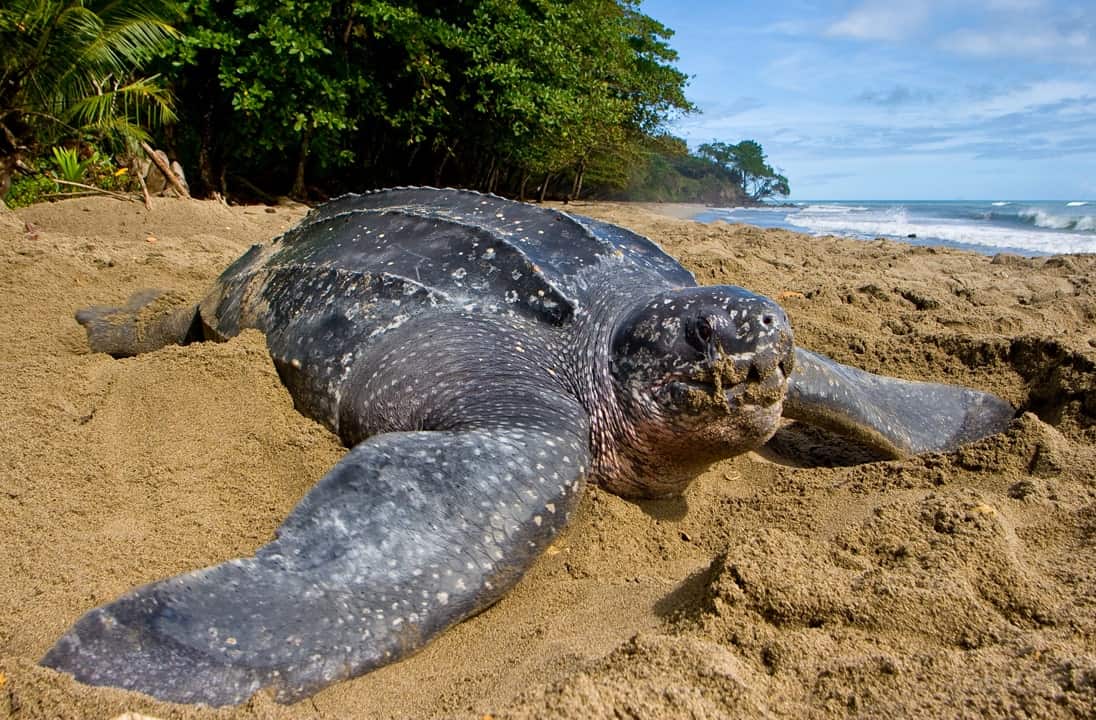
Saving Sea Turtles Is Saving the Oceans
Beyond “just" saving sea turtles, our programs aim to leverage action for broader marine conservation. Because saving sea turtles and saving the oceans require many of the same actions, like addressing unsustainable fishing, reducing ocean pollution, mitigating global warming, protecting habitats like coral reefs, mangroves, and seagrass beds, maintaining natural coastlines, and developing sustainable local economies. Our experience shows that investing in sea turtle conservation efforts has a disproportionately positive impact on improving overall ocean health. Saving sea turtles is saving the oceans.
Read More About Sea Turtle Conservation
Support Sea Turtle Conservation Worldwide
With your donation to Oceanic Society's sea turtle programs, you help provide tools, resources, and support to our network of thousands of sea turtle conservationists worldwide.

